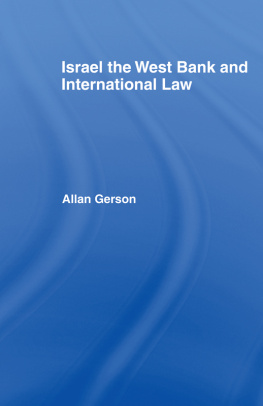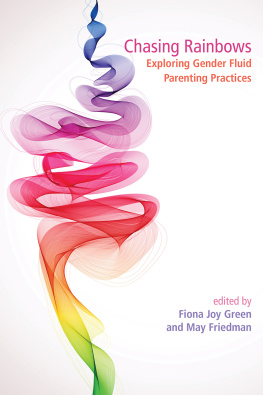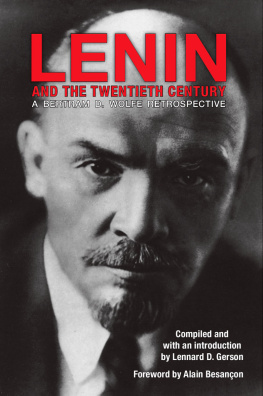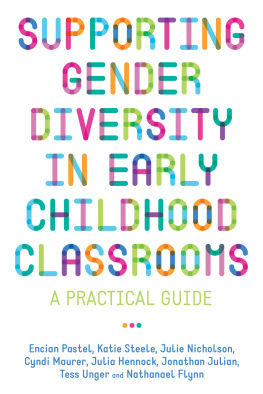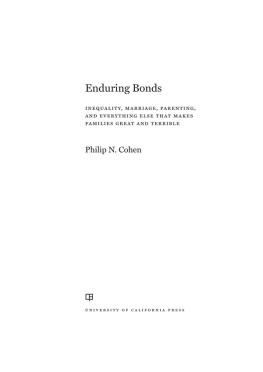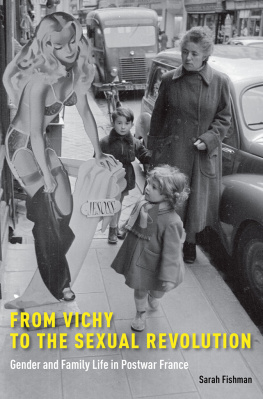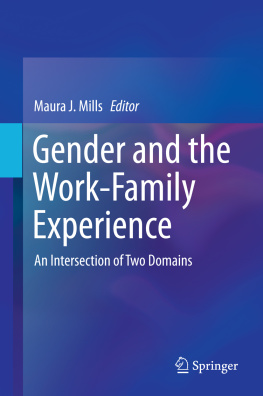The Unfinished Revolution
The Unfinished Revolution
How a New Generation Is Reshaping Family, Work, and Gender in America
KATHLEEN GERSON


Oxford University Press, Inc., publishes works that further Oxford Universitys objective of excellence in research, scholarship, and education.
Oxford New York
Auckland Cape Town Dar es Salaam Hong Kong Karachi
Kuala Lumpur Madrid Melbourne Mexico City Nairobi
New Delhi Shanghai Taipei Toronto
With offices in
Argentina Austria Brazil Chile Czech Republic France Greece
Guatemala Hungary Italy Japan Poland Portugal Singapore
South Korea Switzerland Thailand Turkey Ukraine Vietnam
Copyright 2010 by Oxford University Press, Inc.
Published by Oxford University Press, Inc.
198 Madison Avenue, New York, NY 10016
www.oup.com
Oxford is a registered trademark of Oxford University Press.
All rights reserved. No part of this publication may be reproduced, stored in a retrieval system, or transmitted, in any form or by any means, electronic, mechanical, photocopying, recording, or otherwise, without the prior permission of Oxford University Press.
Library of Congress Cataloging-in-Publication Data
Gerson, Kathleen.
The unfinished revolution : how a new generation is reshaping family,
work, and gender in America / Kathleen Gerson.
p. cm.
Includes bibliographical references and index.
ISBN 978-0-19-537167-3
1. FamilyUnited States. 2. Work and familyUnited States.
3. Professional employeesUnited States. 4. Women employeesUnited States.
5. Male employeesUnited States. 6. Sex roleUnited States.
I. Title.
HQ536.G47 2009
306.872dc22 2009012789
9 8 7 6 5 4 3 2 1
Printed in the United States of America
on acid-free paper
For Emily
CONTENTS
ACKNOWLEDGMENTS
LIKE GROWING UP, writing a book is a long and unpredictable process that depends on the generosity of family, friends, and colleagues as well as strangers. Having reached the end of the path for this one, I can only marvel at my good fortune for the support so many people have given me along the way.
To start at the beginning, the research project on the Immigrant Second Generation in Metropolitan New York, conducted by Philip Kasinitz, John Mollenkopf, and Mary Waters, helped me to identify my sample. (The leading funding source for this project was The Russell Sage Foundation, led by Eric Wanner.) Jennifer Holdaway introduced me to the intricacies (and quirks) of Atlas.ti. Two gifted research assistants, Stephanie Byrd and Jordana Pestrong, conducted a portion of the interviews, and their contributions greatly enriched insights gleaned from my own forays into the field. Eleanor Bernal transcribed the interviews with her usual intelligence and good cheer, and Courtney Abrams helped organize and code the transcripts for computer analysis. Sarah Damaske provided both heroic help in compiling the references and insightful feedback on early drafts. Most important, the young women and men who agreed to spend their time with me and my assistants have my deep gratitude and respect. We entered their lives as strangers, and they opened their doors and shared their most private experiences and thoughts with us. My hope is that the interview process gave them at least a portion of the insight and enjoyment that their participation gave us.
A wide and deep network of colleagues and friends listened to my developing thoughts, provided essential feedback, and offered moral support. A writing group with Lynn Chancer, Ruth Horowitz, and Arlene Skolnick served as a forum for thoughtful discussions and constructive criticism. Many other colleagues inspired me with their own work and their reactions to mine. Among these, I am especially grateful to Rosalind Barnett, Cynthia Epstein, Jennifer Glass, Sydney Halpern, Lynne Haney, Sharon Hays, Rosanna Hertz, Jerry A. Jacobs, Pamela Stone, Viviana Zelizer, and Eviatar Zerubavel. My students, especially Michael Armato, Stephanie Byrd, Sarah Damaske, Adam Green, Pamela Kaufman, Allen Li, and Louise Roth, also offered valued feedback. Over the years they have taught me as much as I taught them.
The Council on Contemporary Families provided an opportunity to work closely with a remarkable group of academics and practitioners who collaborate at the intersection of research, policy, and clinical practice. My thanks go to all my fellow board members and especially to Stephanie Coontz, Joshua Coleman, Carolyn and Phil Cowan, Paula England, Frank Furstenberg, Steven Mintz, Mignon Moore, Barbara Risman, Virginia Rutter, Pepper Schwartz, Arlene Skolnick, and Pamela Smock. It was a pleasure to organize a CCF conference on dilemmas of work and family in the twenty-first century with Janet Gornick and Joan Williams and then to publish a selection of these presentations in The American Prospect, working with Robert Kuttner.
During the course of this project, I benefitted from stimulating reactions to a number of presentations of my work-in-progress. My thanks go to colleagues at the Charles Phelps Taft Center for Research at the University of Cincinnati, the Institute for the Study of Status Passages and Risks in the Life Course at the University of Bremen in Germany, the MacArthur Foundation Research Network on the Transition to Adulthood, the National Opinion Research Center at the University of Chicago, the New York Chapter of the Stanford Institute for Research on Women and Gender, the Sloan Center for the Study of Myth and Ritual in Everyday Life at Emory University, the Sloan Work and Family Research Network, the Working Group on Wealth and Power in the Post-Industrial Age, and the Departments of Sociology at Harvard University, University of Pennsylvania, University of California at San Diego, University of Southern California, and Vanderbilt University. I am also grateful for incisive blind reviews from Stephanie Coontz, Sharon Hays, Pamela Stone, Eviatar Zerubavel, and two anonymous reviewers as well as for thoughtful comments from Naomi Schneider at the University of California Press and Elizabeth Knoll and Joyce Seltzer at Harvard University Press.
It has been an unqualified pleasure to work with the team at Oxford University Press. David McBride and Niko Pfund inspired me with their enthusiasm and professionalism. Keith Faivre handled the editing and production stages with an unerringly deft touch. To put it simply, James Cook has been the best editor imaginable. Through every stage in the publication process, he has gone above and beyond the call of duty, offering wise advice, masterful editing of the manuscript, much-appreciated help with the title, and unstinting attention to large and small details at every turning point. In an age of declining budgets and overburdened editors, I have been exceedingly fortunate to have James as an editor and a friend.
Since this book is about families, writing it has provided me with an opportunity to savor my own. Rose Blum successfully raised my sisters and me with unwavering grace and dignity at a time when single motherhood was rare and womens options were far too limited. Now in her ninety-third year, she remains as warm, courageous, and life-affirming as ever. She taught me that a love of life, an indomitable spirit, and a sense of humor will not only help you prevail over lifes difficulties but also give you the courage to make a difference in the world. My two sisters, Linda and Betty Gerson, are testament to the wisdom of her outlook. Through their friendship and example, they have given me a lifelong appreciation for the meaning of sisterhood.
Next page

